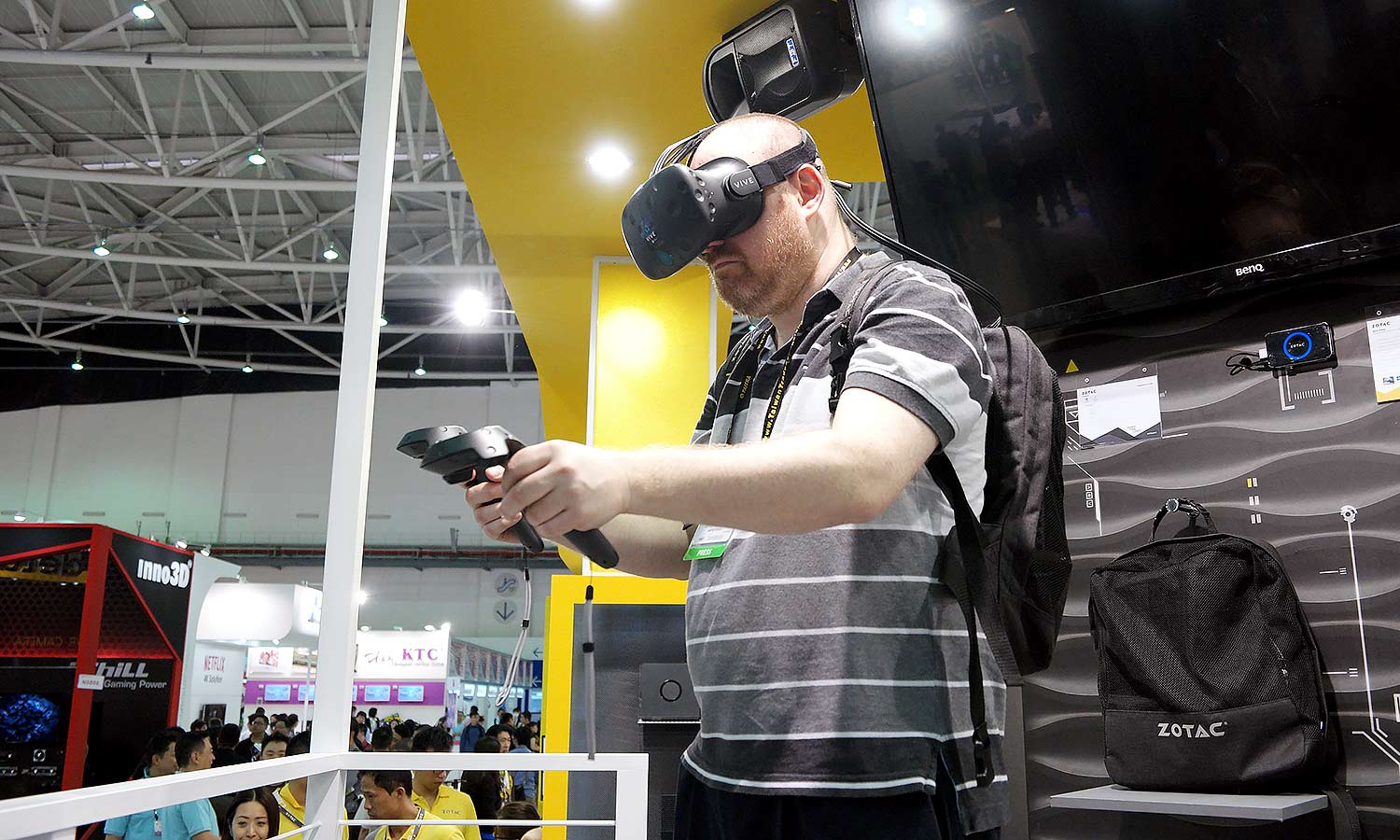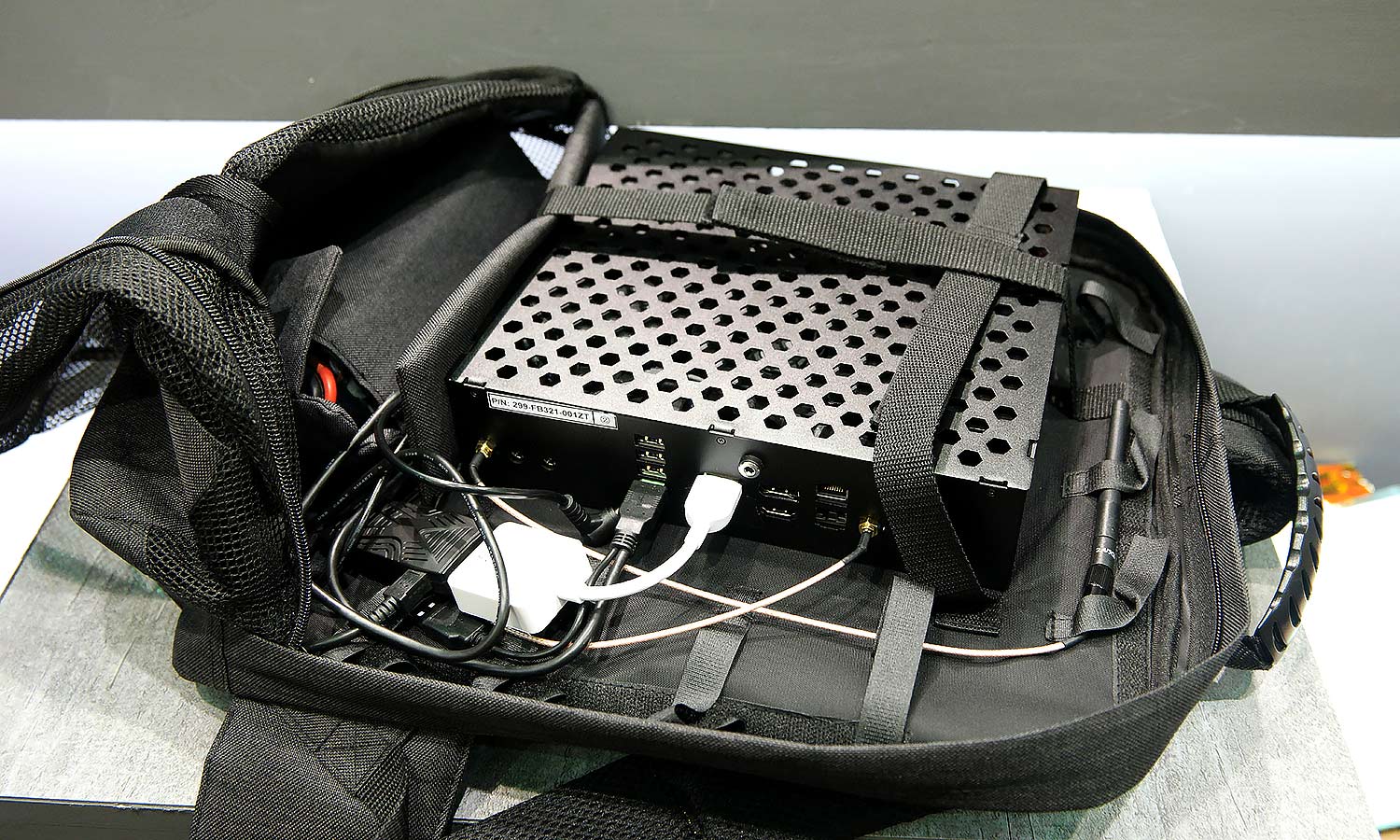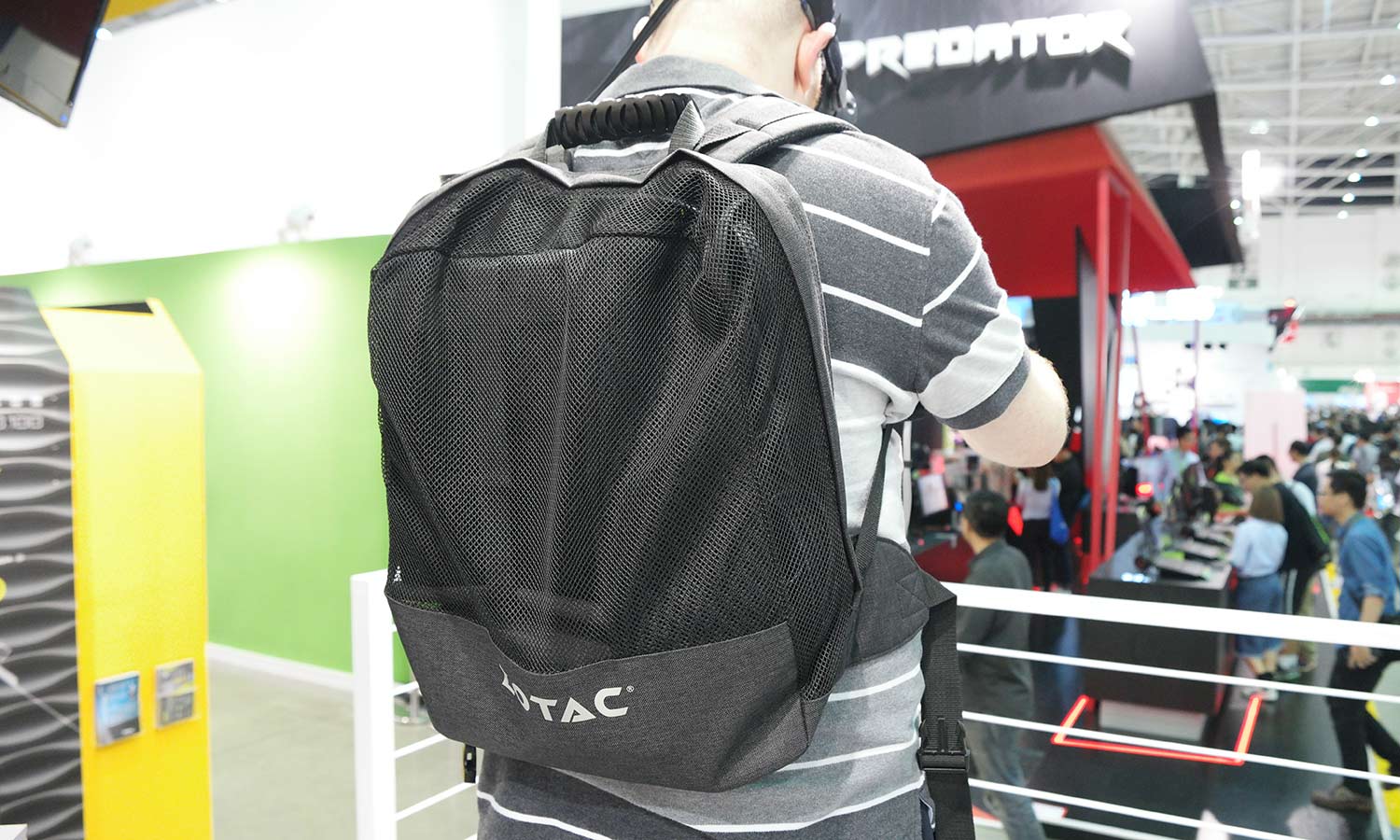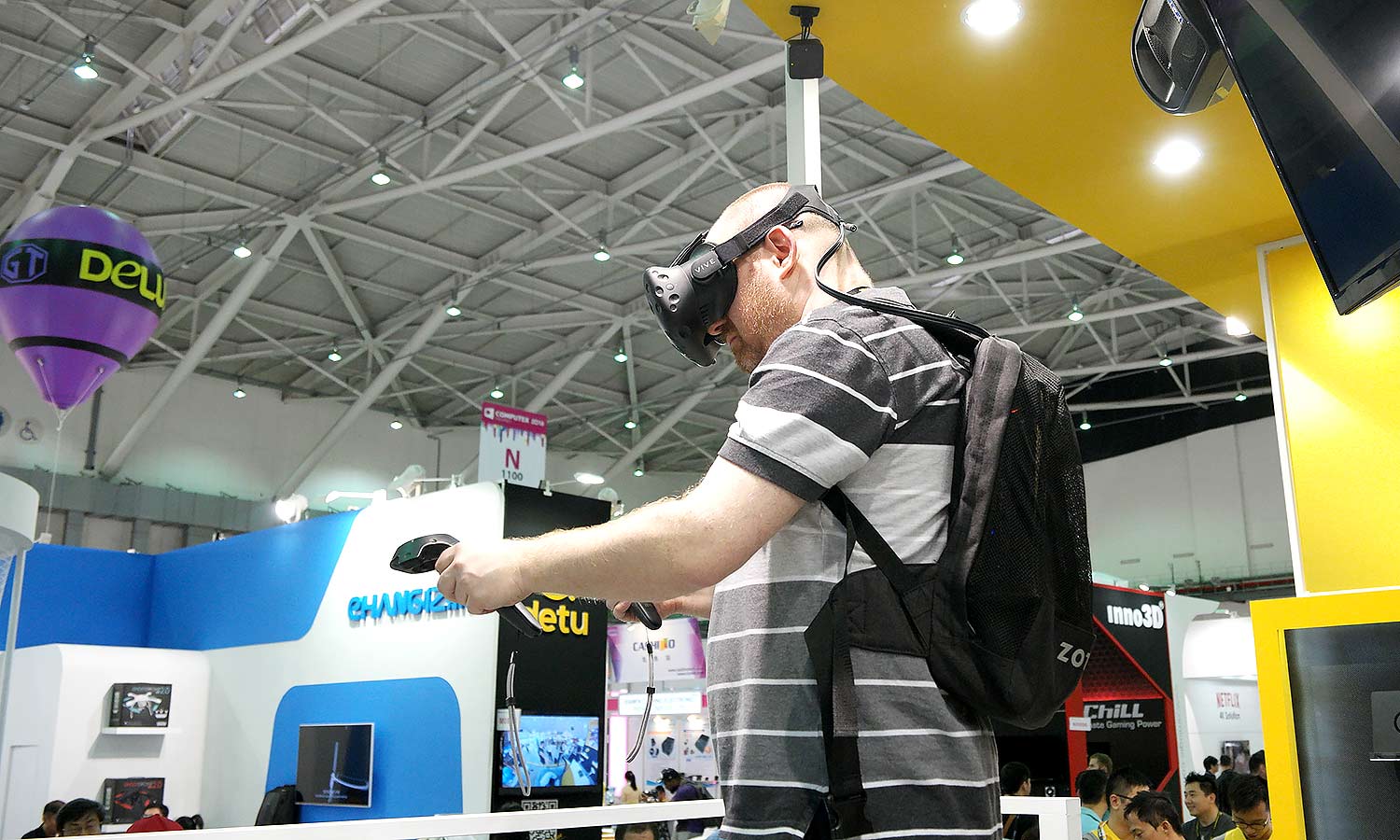Zotac Backpack PC Solves HTC Vive's Wire Problem
This 11-pound desktop PC in a bag can power an HTC Vive while you wear it on your back, preventing you from dragging the headset's wire around while you play.

TAIPEI, Taiwan — VR was everywhere at this year's Computex Taipei tradeshow and so were backpack computers, designed to help you use the HTC Vive headset, without dragging a wire with you as you play. At its booth, Zotac showed off its upcoming entry into the suddenly-crowded PC-in-a-pack, a battery-powered desktop in a soft gray bag. I had a chance to go backs on with the as-yet-unnamed device and it was relatively comfortable, all things considered.
A number of other vendors have already announced PC backpacks, with HP showing a prototype earlier this year and MSI and Chaintech flashing their new packs at the show. All of the packs are designed to help users enjoy the HTC Vive without dragging around a long wire that connects the headset to their PCs.

Zotac's dark-gray pack contained a small, rectangular PC, which was equipped with an Nvidia GTX 980 desktop graphics card, a quad-core Core i5-6400 CPU, 8GB of RAM and a 240GB M.2 SATA SSD. The computer had wires to connect to the Vive headset and a battery, which promises 1 to 2 hours of unplugged use. The model I used is a prototype with no model name yet, and its design and specs that are not final.
MORE: Best of Computex
At around 11 pounds, the pack didn't feel weightless, but it was actually a lot lighter than the laptop backpack I carried with me all day, which was loaded with my notebook, a camera and a few wires. The pack was also thinner than my own. The main straps were nicely padded to make them easy on the shoulders, and there was also a waist strap. MSI's pack is approximately the same weight.

After a Zotac rep put the HTC Vive headset over my face and handed me the dual controllers, I was firmly ensconced in a virtual world. First, I played a very simple space game where I had tiny meteors flying at me and I had to shoot them with a laser. This first title didn't require a whole lot of movement beyond rotating slightly on my feet so the feeling of the pack was less obvious.
Then the Zotac team fired up a game of Arizona Sunshine, a first-person zombie shooter. The game has incredibly detailed graphics and a fairly large playing field. I didn't have to walk much in this game, but I did have to rotate and crouch down a little bit to aim my guns at the oncoming hoard. As I bent my knees slightly, I could definitely feel the large computer on my back.
As I pivoted rapidly to meet an oncoming zombie and then bent down to reload, something occurred to me. What if I get too aggressive in the game and lose my balance? If I tripped while wearing the Vive, I might fall backward and break the expensive desktop or fall on my face and smash the almost-as-expensive headset. However, I never felt like I was in any actual danger of falling during my experience.

The Zotac Backpack PC and its brethren offer a rather dramatic solution to a unique problem that only affects the Vive. If the Vive succeeds commercially, we can imagine a future version being wireless or building a self-contained computer into the headset. However, for now, HTC's device requires a powerful desktop-class computer and standard wireless protocols such as 802.11ac just aren't responsive enough to go without the cord. Most Vive users will undoubtedly choose to live with the wire problem rather than buying a backpack PC, but for those who are willing to spend the money and carry the weight, a pack may be worth it.
Zotac's backpack PC is due out in Q4 of this year. There's no word yet on pricing but we would expect it to be more expensive than the company's $1,800 Magnus desktop PC, because that system doesn't have the batteries, carrying case or thin form factor of the backpack. The specs are are likely to change as new video cards and CPUs ship later this year.
Sign up to get the BEST of Tom's Guide direct to your inbox.
Get instant access to breaking news, the hottest reviews, great deals and helpful tips.
